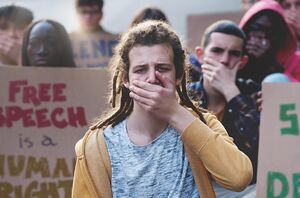Freedom of Speech
Tensions between free speech and hate speech in Islamophobia Council proposal
Angela Rayner is establishing a 16-member council on Islamophobia to define anti-Muslim discrimination and advise ministers on addressing it.
Former Conservative attorney general Dominic Grieve is being considered to lead the council, based within the Ministry of Housing, Communities and Local Government (MHCLG).
Grieve, known for his work on interfaith dialogue and a controversial 2018 definition of Islamophobia, described defining Islamophobia as “extremely difficult” due to concerns about free speech. He acknowledged, however, the discrimination many Muslims face, stating it requires constructive action.
The 2018 definition from an all-party parliamentary group (APPG) labels Islamophobia as “a type of racism targeting expressions of Muslimness.”
Critics argue this could stifle legitimate debate about Islam, likening it to a modern blasphemy law.
Shadow justice secretary Robert Jenrick called the definition “deeply flawed,” saying it risks limiting free expression and disproportionately protecting Islam over other faiths.
Among the shortlisted council members is Qari Asim, a Leeds imam dismissed by the government in 2022 for supporting protests against the film The Lady of Heaven about the prophet Mohammed’s daughter.
Concerns have also been raised over expanded recording of “non-crime hate incidents,” which some fear could further restrict free speech.
Paul Stott, a Policy Exchange expert, warned: “The Government is giving off worrying vibes... that it is potentially amenable to restrictions on ‘blasphemy.’ If so, that is terrible news for freedom of speech.”
The Government has not confirmed whether it will adopt the 2018 definition or develop a new one. An MHCLG spokesperson reiterated the need to tackle all forms of hate but promised further details soon.
The delicate balance between addressing hate speech and safeguarding free expression remains a key concern as the council takes shape.
Share
